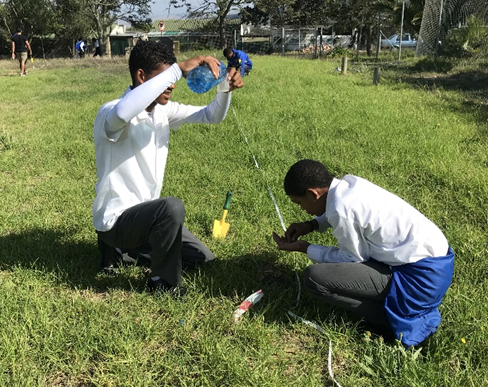Data collected by educators and learners participating in the Iimbovane Outreach Project contributed to an article that was recently published in the scientific journal, Journal of Animal Ecology.
Between 2006 and 2014, learners and educators at various Western Cape schools helped researchers with the collection of ant species. The ant species together with relevant environmental data were collected at Iimbovane study sites including national parks, nature reserves and the schoolyards of the participating schools.
In their study, the researchers examined the traits of ant species from across the Western Cape to identify if and how they could be affected by warming temperatures.
Using the data from multiple Iimbovane study sites, the researchers uncovered that behavioural traits (when each ant species ‘chooses’ to stop searching for food) were able to predict the occurrence and abundance of each species much better than physiological traits (when each ant is too warm or too cold to perform any function).
This indicates that some species will benefit from warming temperatures as their window of opportunity for seeking out food will increase, while other species will have a narrower window for searching for food.
By identifying which ant species will be affected, and how, the researchers will better identify the winners and losers of climate change, predict non-native species invasions and impacts, and improve management outcomes of South Africa’s unique ecosystems.

Read the paper
Braschler, B. et al., 2020. Realised rather than fundamental thermal niches predict site occupancy: Implications for climate change forecasting. Journal of Animal Ecology. http://dx.doi.org/10.1111/1365-2656.13358